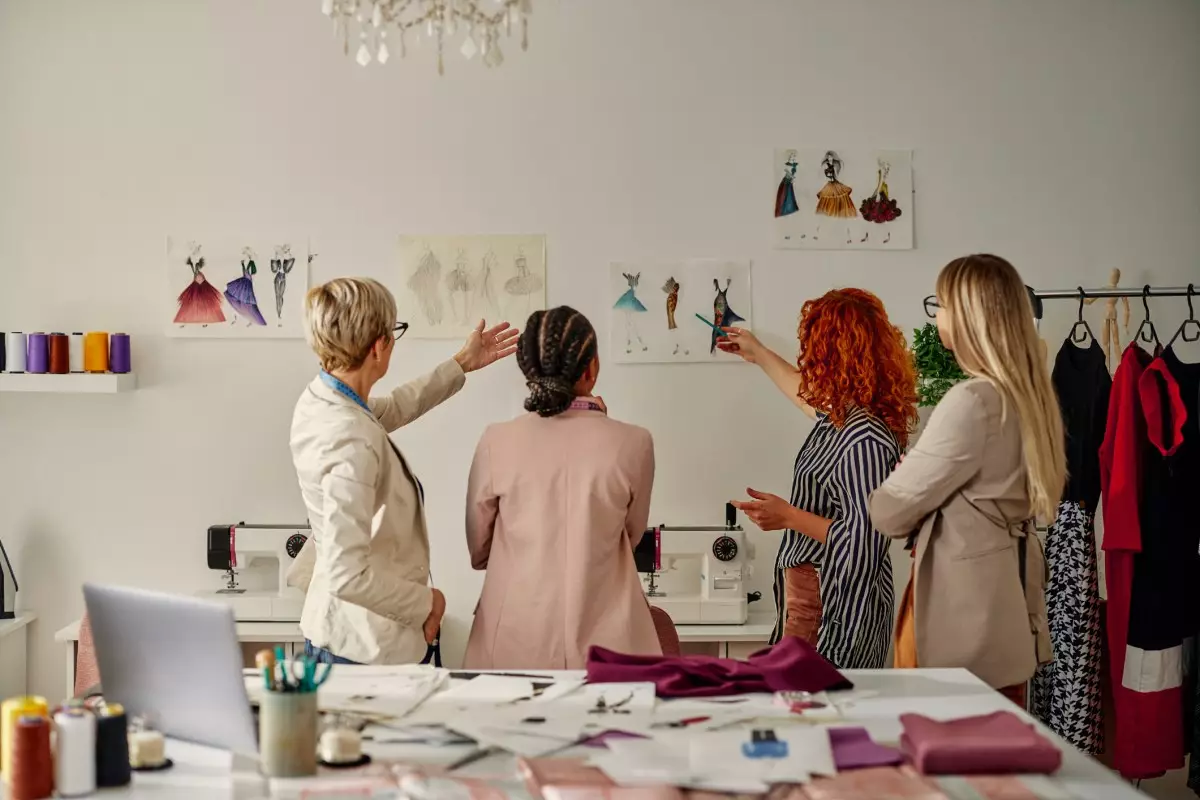The fashion industry is evolving at an unprecedented pace, and the impact of technology, particularly generative artificial intelligence, is reshaping how brands conceptualize and produce clothing. Retailers have historically followed a traditional design route, taking months from concept to creation, but in the age of rapid turnover and fast fashion, the stakes have changed dramatically. Brands like Shein, H&M, and Zara are at the forefront of this shift, where new designs are not just seasonal; they can be monthly, weekly or even daily.
Amid the surge in demand for sleek, innovative designs, companies have started to pivot towards technological interventions that streamline the creative process. Raspberry AI, a startup birthed just two years ago, has introduced a path-breaking “text-to-image” platform that serves as a game-changer in fashion design. Founded by Cheryl Liu—a former private equity analyst who transitioned through roles at Amazon and DoorDash—Raspberry AI was conceived when generative AI models such as OpenAI’s DALL-E and Stability AI’s Stable Diffusion became publicly available in late 2022. Liu recognized a unique opportunity for designers to leverage this emerging technology to visualize and iterate on their ideas at a speed that was previously unimaginable.
Before the arrival of generative AI, designers faced protracted timelines because they were reliant on physical samples to bring their ideas to life. This exhaustive process took weeks to yield results. Older tools such as Browzwear and Adobe Photoshop, while useful, didn’t provide the efficient feedback loop that designers craved. In contrast, Raspberry AI enables designers to instantly convert their sketches into hyper-realistic images. Liu emphasized how this capability allows brands to visualize the same design in different materials, prints, and colorways without the need for costly and time-consuming physical samples, thus expediting the decision-making process regarding production.
In a relatively short period, Raspberry has captured attention and demand from significant players in the fashion industry. The startup has amassed a client roster that boasts names like Under Armour, Groupo Teddy, and luxury brand MCM Worldwide. This momentum not only speaks to the efficacy of Liu’s platform but also underscores a broader enthusiasm among fashion houses for tech-driven solutions. Such interest has translated into impressive financial backing; Raspberry recently raised a remarkable $24 million in Series A funding led by Andreessen Horowitz, adding to the $4.5 million seed round. This endorsement from a prominent venture firm reflects confidence in the startup’s potential to disrupt traditional paradigms within the fashion sector.
Bryan Kim, a partner at Andreessen Horowitz, noted the firm’s interest in investing specifically in companies that can amplify the fashion manufacturing cycle. His enthusiasm was fueled not just by the business model but also by Liu’s dynamic approach as a founder—a testament to the belief that leadership is as crucial as the technology itself.
Despite the growing clamor around AI image generators, Raspberry AI carves out a niche for itself with features designed specifically for industry professionals. The platform’s ability to grasp and translate fashion-specific terminology into actionable designs is a significant advantage over competitors like Midjourney and DALL-E. Liu cited the term “fuzzy sweater” as an example, explaining that generative models not tailored for fashion fall short of understanding the nuances that professional designers incorporate into their work.
Moreover, Raspberry’s unique feature that enables the transformation of sketches into images aligns directly with the needs of designers who thrive on creativity and quick iterations. This tailored approach assures fashion professionals that their designs retain integrity from concept to digital representation, which is crucial in a market that prioritizes aesthetic appeal.
Broadening Horizons Beyond Fashion
Raspberry AI has plans to expand its technological prowess beyond the realms of fashion, eyeing industries such as home décor, furniture, and cosmetics product design. With the latest funding, the company intends to bolster its engineering, sales, and marketing teams, thereby broadening its influence across various creative fields. As other sectors begin to recognize the potential of generative AI to revolutionize design processes, Raspberry AI is strategically positioned to lead this change.
As retail moves into an era that demands speed and adaptability, tech-driven solutions like Raspberry AI will likely play a pivotal role in shaping the future of fashion design. This startup serves as a beacon of innovation, illustrating how the amalgamation of creative expression and advanced technology can coalesce to create a more efficient and dynamic industry.

